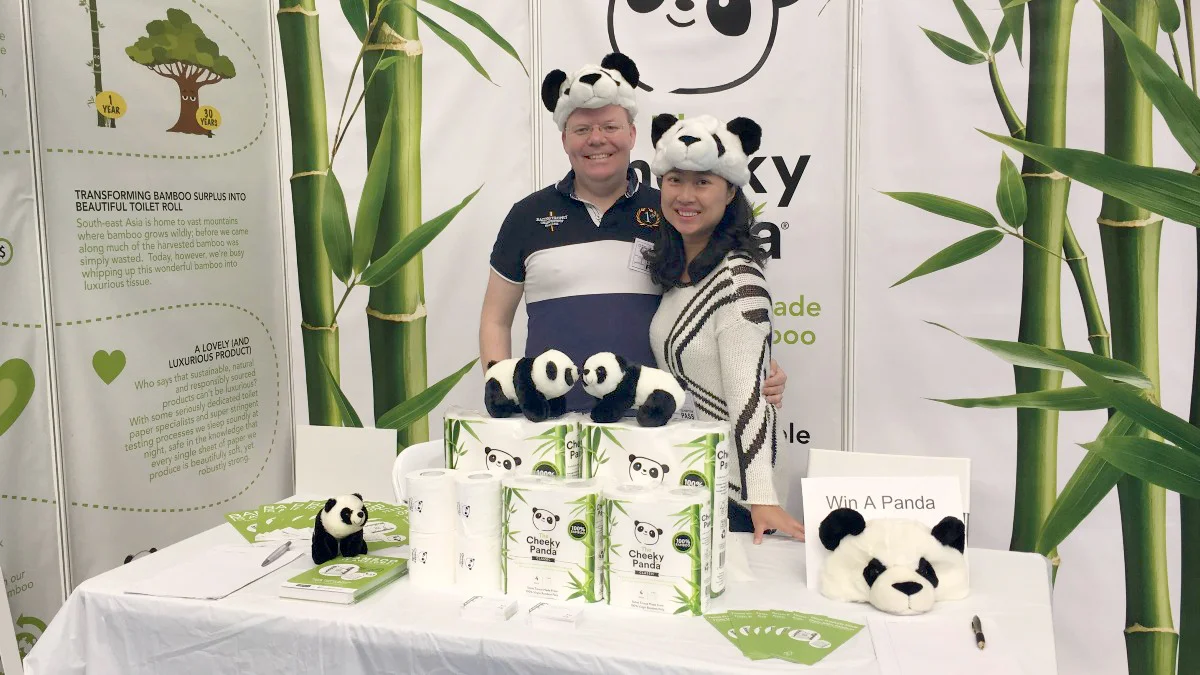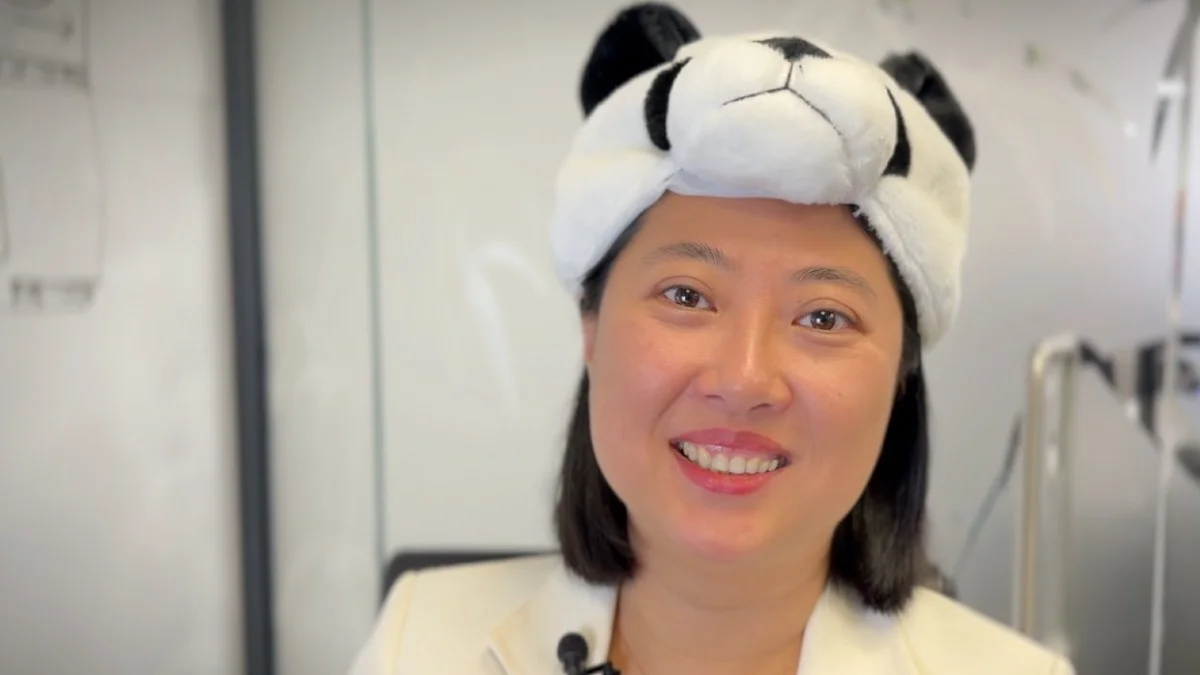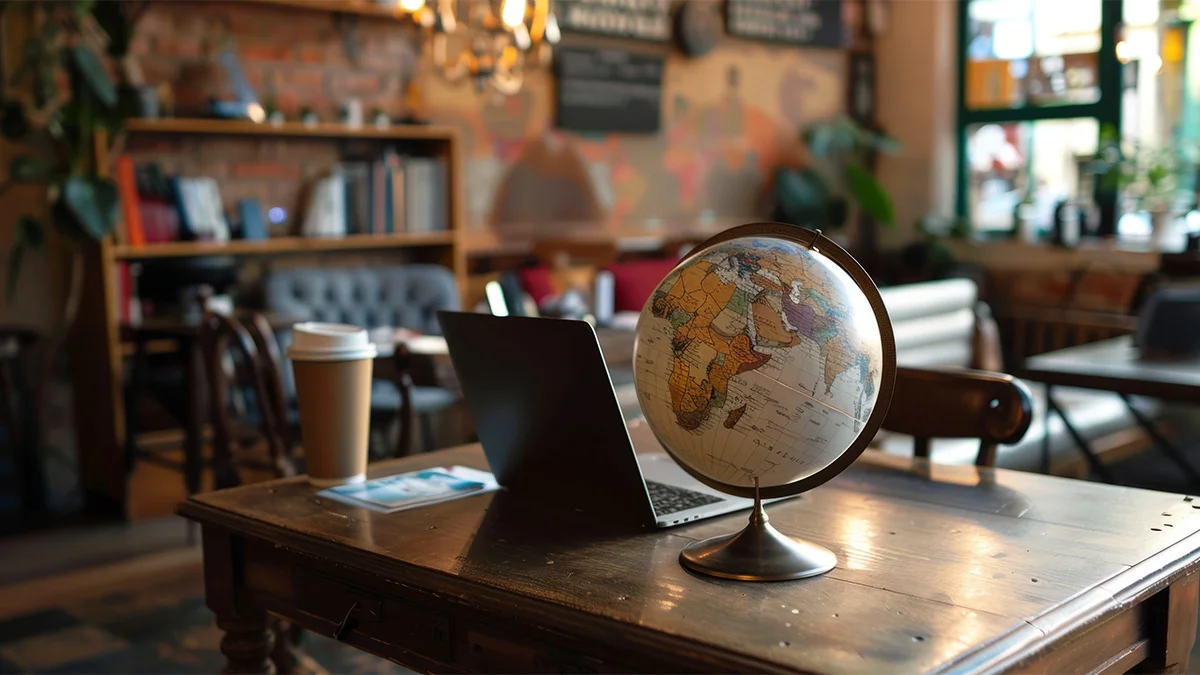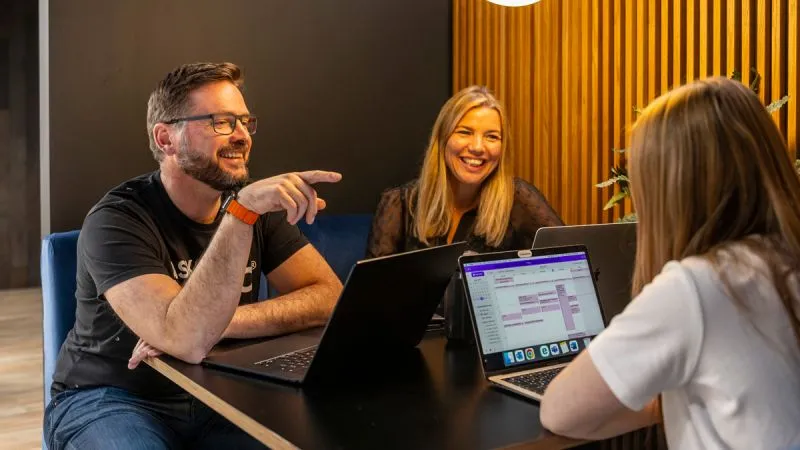
Julie Chen is a member of Business Leader. Our aim is to help mid-size CEOs and founders fast-forward their growth through peer-to-peer networking, events and content. Click here if you’re interested in hearing more.
Toilet paper may not be the most glamorous of products but Julie Chen has shown that with a bit of imagination, it can be the basis for a thriving business. Chen co-founded The Cheeky Panda with her husband in 2016. The business selling eco-friendly toilet paper started as a side hustle in a spare room but its products are now stocked in supermarkets around the UK and abroad.
The Cheeky Panda, based in London, specialises in mass-produced, eco-friendly products made from bamboo. It remains best known for its toilet paper, but it also sells other paper-based household products such as kitchen rolls, tissue wipes and straws. The company sources its bamboo products from China, where Chen grew up. She was raised in Fujian province on the south-east coast and studied in Beijing.
After a period working for Japanese companies in China, she moved to the UK in 2005 to study for a master’s degree. She worked again for Japanese companies in the UK, specialising in commodities and supply chain movements. However, she also had an entrepreneurial streak. On top of her corporate job, she set up her first side hustle, importing trainers from China and selling them online.

In 2016, she and her (now) husband Chris Forbes spotted an opportunity when they visited a bamboo farm in China, seeing it as a renewable natural resource in plentiful supply. They realised they could set up a business importing toilet paper made from bamboo grown and manufactured in China. They would target it at eco-conscious consumers. The fact that Chen could speak Mandarin was helpful to them both.
The company enjoyed steady growth, but sales jumped during Covid lockdowns. Toilet paper became a hot topic of conversation as there were fears supplies were dwindling. Her B Corp-certified company now employs 35 people, selling its products in more than 25 countries, with a turnover last year of £12m.
Scaling with the crowd
The Cheeky Panda has scaled without any institutional investment. It sought crowdfunding support at the outset to raise early capital and buy product stock for market. The initial crowdfunding round also allowed The Cheeky Panda simply to test interest in the market, Chen explains.
People who invest in crowdfunded businesses often become loyal customers and champion the brand because they feel part of the journey. The Cheeky Panda has continued to raise capital through crowdfunding rounds. Its latest one with Seedrs in late 2022 raised nearly £1m, offering some equity in the business.
At the same time, Chen has made a name for herself by proudly becoming her brand, wearing a Cheeky Panda hat to all kinds of business events. She says her inspiration for this comes from Sir Richard Branson, who would promote Virgin at every opportunity. “You have to do something different to stand out,” she adds.
Chen describes herself and her leadership style as a “non-stereotypical CEO” who has “faced challenges, but never let doubts define me”. She has certainly defied the odds to become a successful entrepreneur, being a woman from an ethnic minority background.
Reports have consistently shown how tough it is for female entrepreneurs to persuade investors to back them. The government’s Invest in Women Taskforce recently reported that businesses led by all-women founding teams received just 1.8 per cent of all venture capital funding in the first half of the year.
“As a leader, surrounding myself with people who lift me up is essential,” Chen says. “In turn, I’m committed to empowering others to succeed. Being a leader from an ethnic background, it’s important to me to build a diverse team with multicultural and international thinking.”
Eight different countries are represented in her team. She has sponsored employees with their working visas when she recruits them from outside Europe. She would also personally mentor new recruits in the early days of the company.
AI curious
Toilet tissue is not a very “techie” industry. But Chen is fascinated by the possibilities that technology affords, and it has a big impact on the business. One of the reasons that such a small team can run her large operation is that she has invested in supply chain technology.
It was hard in the early days especially, says Chen, because the lead time to get her product from China is three months. Sometimes they didn’t have enough product, other times they had too much and then the storage costs racked up.
Cheeky Panda now uses Oracle NetSuite for what Chen calls the “core foundation” of the business, supplemented by add-ons such as stock-forecasting systems. The tech helps the product supply chain run smoothly, anticipating problems before they happen. Forecasting and product ordering are now automated. The tech also lets everyone in the company have visibility of the stock situation, since it is so crucial.
Chen has now turned to artificial intelligence to help create exciting new opportunities for the business. One of her first uses of AI has been in branding, appropriate for someone very involved in creative branding in particular.
Whenever she brainstorms design ideas she uses AI tools to ensure the company’s iconic panda motif remains recognisable and on brand, whatever position she sketches it in. She then works with a professional illustrator to finalise any designs for market.
She is also using AI to develop a sustainability training app, which will be just for internal use by her staff at first. “The app will allow our employees to receive sustainability training with AI-generated quizzes and their managers and other employees will be able to see the scores,” says Chen.
“We’re creating a unique training app that includes information such as general knowledge on sustainability, our carbon footprint data, biodiversity, our supply chain information and our company certificates relating to sustainability.”
The app can also potentially be used by distributors and clients to train their employees about The Cheeky Panda’s products, she says. Chen takes her fascination with AI home with her, too. When work gets busy, she uses ChatGPT to generate bedtime stories for her son, using prompts to make sure they include his favourite Super Mario characters – showing the same inventiveness that has made The Cheeky Panda such a success.
Julie Chen is a member of Business Leader. Our aim is to help mid-size CEOs and founders fast-forward their growth through peer-to-peer networking, events and content. Click here if you’re interested in hearing more.
Related and recommended
Richard Harpin, the founder of HomeServe and Growth Partner and owner of Business Leader, answers your burning business questions
Contestants from The Apprentice reveal the fundamental business lessons they learned from taking part in the TV show
From global talent pools to AI-powered documentation, a work-from-anywhere model is a new way of thinking about productivity, innovation and teamwork
The story of how cycling brought Business Leader member John Readman together with his co-founder and investors




